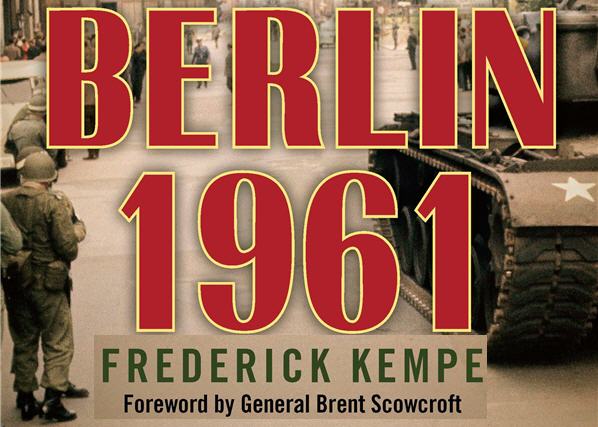
It was the first, live televised press conference in U.S. history, and President John F. Kennedy beamed his 200-watt smile as he looked across the assembled media gathered in the cavernous, newly opened State Department auditorium. He had real news for them: Soviet leader Nikita Khrushchev had released two captured American airmen, which Kennedy could sell as an early demonstration that he could handle Moscow more effectively than had his predecessor Eisenhower.
However, in what would be the first mistake of his five-day-old presidency, the new president instead was privately obsessing on what he considered a Khrushchev declaration of escalated Cold War against him. The young and inexperienced president, who had not yet assembled his Soviet experts for a policy review, thought a Khrushchev speech in early January contained Khrushchev’s true intentions. Thus, he was suspicious of the airmen’s release and other Soviet good will gestures, including the unprecedented publication of the president’s full inaugural address in the Soviet media.
This early Kennedy judgment call on Khrushchev would shape the rest of the year, though it was based on faulty analysis. With it, Kennedy would miss perhaps the only opportunity he would have during the year to test whether it would be possible to improve relations with the Soviets. Nine days later, he would sharpen his rhetoric toward the Soviet Union his State of the Union, speaking like a leader who had discovered the great purpose he had been seeking. He said:
Each day, the crises multiply. Each day, their solution grows more difficult. Each day, we draw nearer the hour of maximum danger. I feel I must inform the Congress that our analyses over the past ten days make it clear that, in each of the principle areas of the crisis, the tide of events has been running out – and time has not been our friend.
Seldom has history provided a better example of the dangers that come with a newly elected U.S. president who, though convinced of his own instincts and brilliance, lacks the experience or context to weigh the data that begins to flood him. Kennedy’s hawkish turn toward the Soviet Union prompted Khrushchev to dramatically retreat from his early efforts to woo Kennedy. On February 11, Khrushchev would return from an agricultural tour for an emergency party leadership meeting, where his rivals called for a policy shift to address new American militancy.
Kennedy’s response may have seemed understandable at the time. In his January speech, Khrushchev had said, “We will beat the United States with small wars of liberation. We will nibble them to exhaustion all over the globe, in South America, Africa, and Southeast Asia.” Referring to Berlin, Khrushchev promised he would “eradicate this splinter from the heart of Europe.”
Llewelyn “Tommy” Thompson, the U.S. ambassador to Moscow, had stoked Kennedy’s concerns in a cable intended to prepare Kennedy for his press conference. He advised Kennedy, if asked about the speech, to say “he cannot understand why a man who professes to wish to negotiate with us publishes a few days before his inauguration what amounts to a declaration of Cold War and determination to bring about the downfall of the American system.”
What Thompson failed to tell Kennedy was that there really was nothing new in what Khrushchev had said. His speech was merely a belated briefing to Soviet ideologists and propagandists on the conference of eighty-one Communist parties the previous November. Khrushchev’s call to arms against the U.S. in the developing world had been the result of a tactical agreement with the Chinese to prevent a diplomatic breakdown.
Kennedy considered Khrushchev’s words “game changing,” but they only became so because of the young president’s overreaction to them.
Fred Kempe is president and CEO of the Atlantic Council. His latest book, Berlin 1961, was published May 10. This blog series originally published by Reuters.
Image: berlin1961-cropped.jpg
